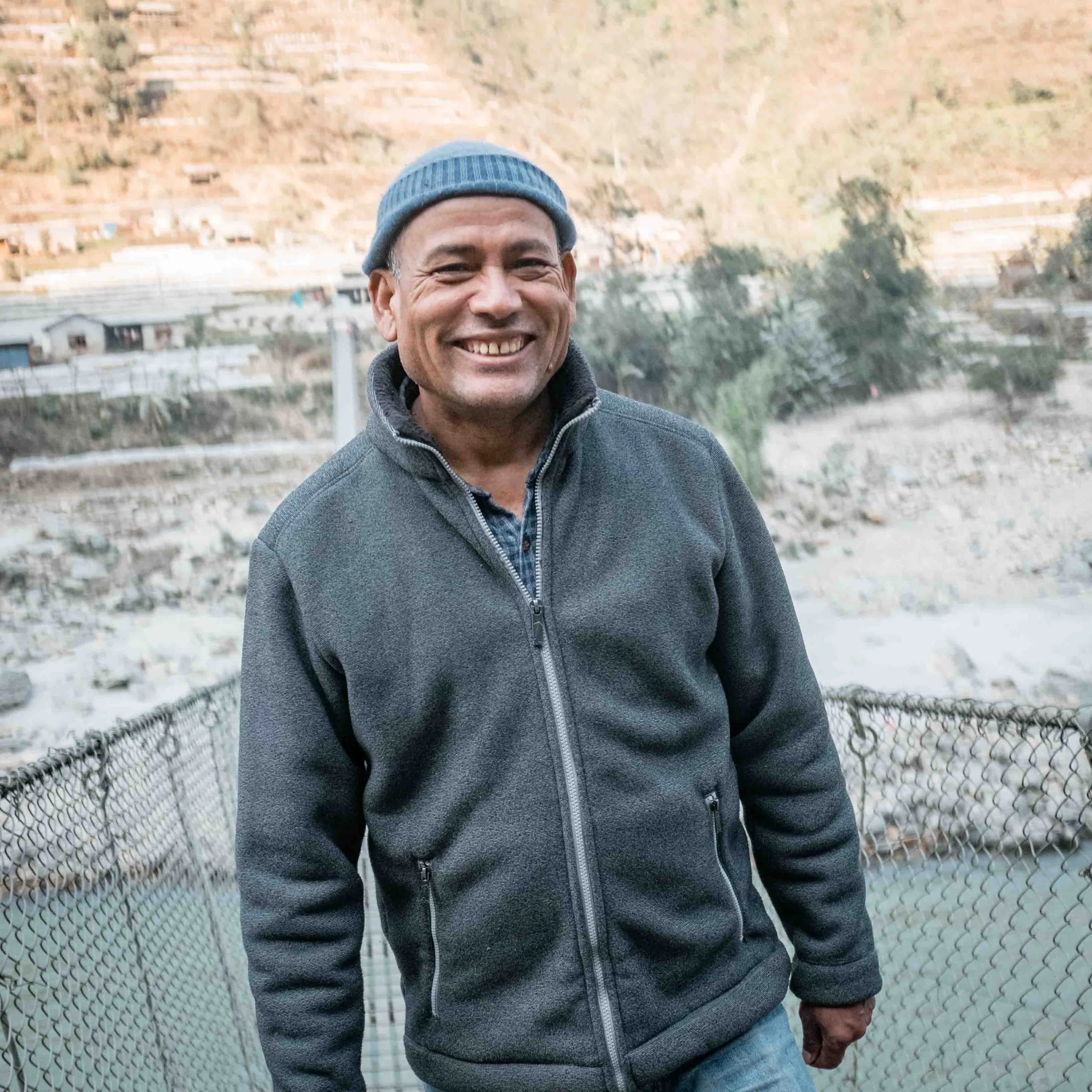Hari’s Story
Chairman and Founder, Clinic Nepal
I was born in the Madi area south of Kathmandu on March 8, 1970, and grew up in the remote village of Meghauli, Nepal, where about 99% of the Nepali population lives by subsistence farming. Access to education was limited, and although I attended school, my parents could only afford an education of an extremely low standard. Healthcare was almost non-existent, except for traditional herbal remedies.
Frustrated with the lack of opportunity in my village, I left home at 17 to seek work in the city. A friend helped me secure a job as a bartender on a hydroelectric project. After saving enough, I returned to Meghauli in 1989 and led the construction of a guesthouse using local materials. In my free time, I volunteered as a tutor for underprivileged children.
By 1991, I was financially supporting several university students while considering medical studies for myself. One night, German and Nepali travelers at the guesthouse introduced me to their mission—helping those affected by leprosy. I joined their team, trained as a health worker, and later co-founded a health clinic and rehabilitation center in Kathmandu, with a focus on leprosy care. With a stable income, I expanded my support for students and teachers.
In 1996, I returned to Meghauli to start what is now called Clinic Nepal. I talked to my father and asked for advice. I asked my brother Ram if he would help me. With the support of my Family, I next sought local help. My community rallied around me and showed me how love works. They could not give money, but they gave everything else: land, hard labor, and local materials. Without any condition. I then started writing for others’ support. I wrote about a hundred letters to various potential donors describing my vision. Payson Kennedy (USA), Peter and Beryl Shore (UK), and Gudrun Penn (DE) graciously became the first funding supporters. Most of whom I had met when I had helped them when they were lost in the jungle years before. Using all of my own funds, and seeking local and international support, we raised enough funds for the construction of Friendship Clinic Nepal, the name of our Clinic building. This building was one of the biggest buildings in our village at the time.
My family became the backbone of Clinic Nepal. In 1997, ‘Clinic Nepal’ was officially founded. Over time, it expanded to include projects in healthcare, education, and safe drinking water. We built a series of kindergartens, a first for Nepal outside of Kathmandu. This significantly improved the local community's well-being. As the Clinic grew, so did my family. I married Sirjana Basnet in 2008. This was a very important moment for me. I could now start my own family. The year 2012, we started the large water tower project, providing safe drinking water to over 20,000 people in the Meghauli community. In 2015, when Nepal was affected by two devastating earthquakes, Clinic Nepal was asked if we could lend a hand, and we did. Over the next two years, we worked in the remote Gorka region to rebuild the hill mountain village of Thumka, which had been all but demolished.
Through our work with Thumka village, we were asked to be a part of the team to build a series of birthing centers. A birthing center is a safe place for a mother to give birth, using a trained midwife instead of a home birth. We saw the child/ mother mortality rate drop significantly in each village. We continued improving the education and the infrastructure of existing schools.
In 2020, during COVID times, our whole system was put to the test; we had to stop everything and turn to humanitarian aid relief for our areas of operation, Meghauli and Kathmandu. But we did our best, our Clinic staff is the best. I even saw my own kids start to help with Clinic Nepal work, planting trees, and handing out face masks and food. It filled my heart with joy.
We know that the future of our country depends on the good health and education of our children. Our projects are focused on achieving these goals while also contributing to the overall socio-economic development of our country. I believe that …. All people have the right to basic healthcare and education.
-Hari Bhandary
